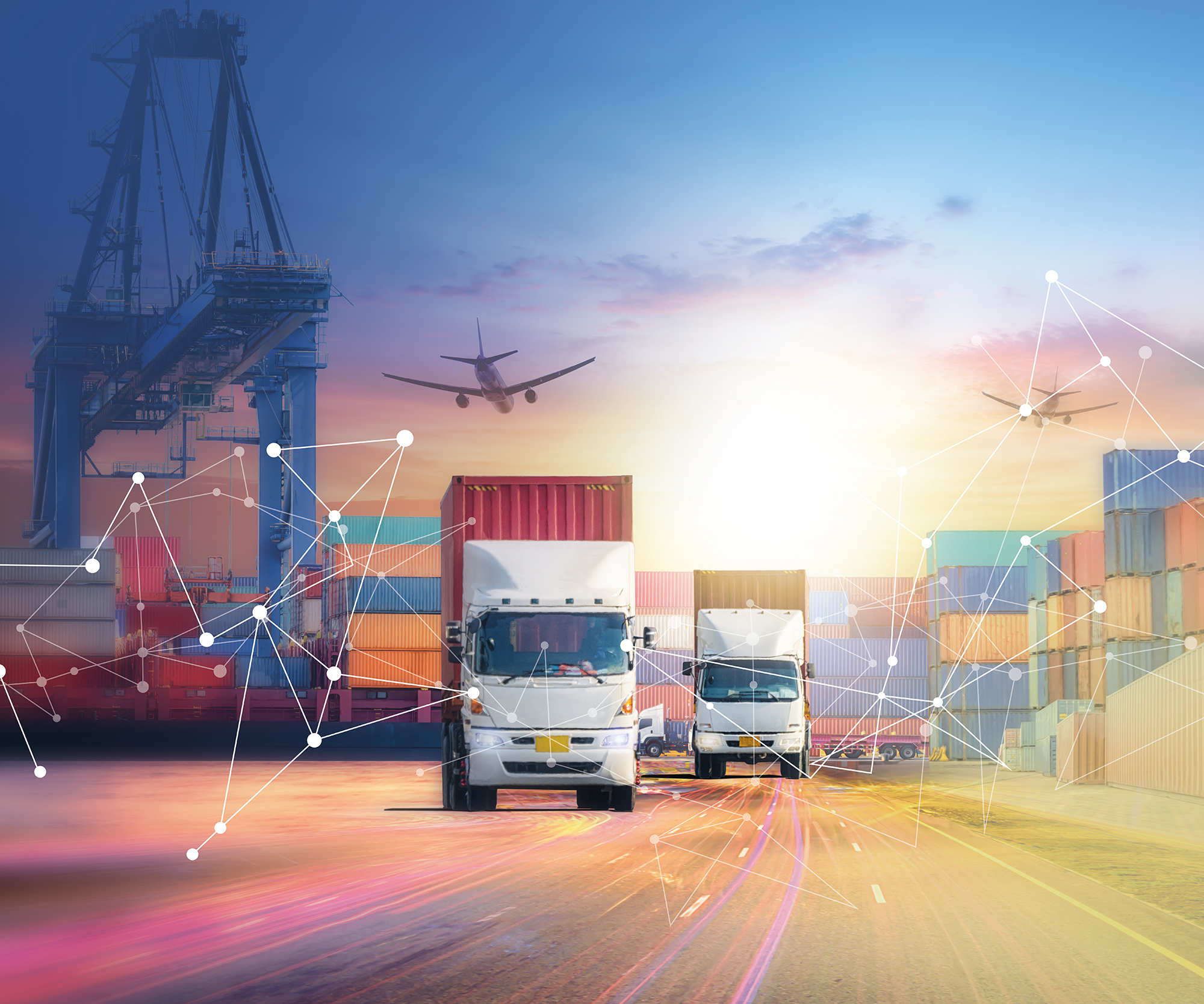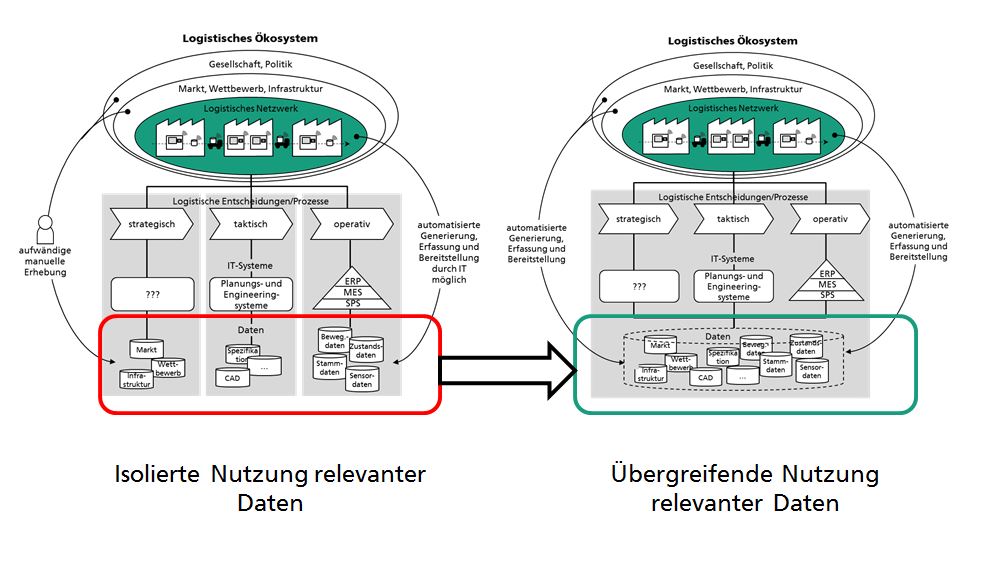Vital importance of supply networks

Efficient supply networks are an essential part of business life. They ensure that the right product reaches the right customer in the right place, at the right time, in the right condition, and at the right cost. In the absence of sophisticated logistics, economic processes in industry, trade or the public sphere would not be possible.
At the same time, the logistics sector is experiencing enormous growth (partly thanks to e-commerce) in an increasingly dynamic environment, driven by new capabilities in the areas of digitization and networking. Current decision-making processes in logistics can barely keep pace with these developments, as decisions are often made in isolation and based on only a section of the relevant data. Although this helps to optimize subsystems (e.g., warehousing processes), it does not take the logistics ecosystem as a whole or its various interdependencies into account.
